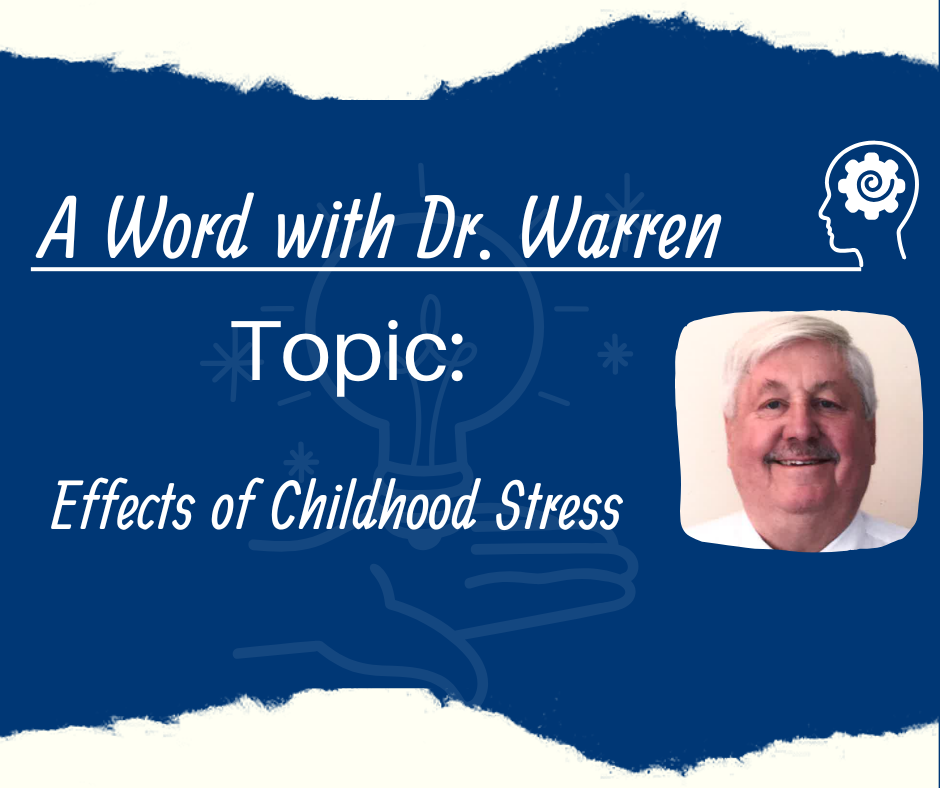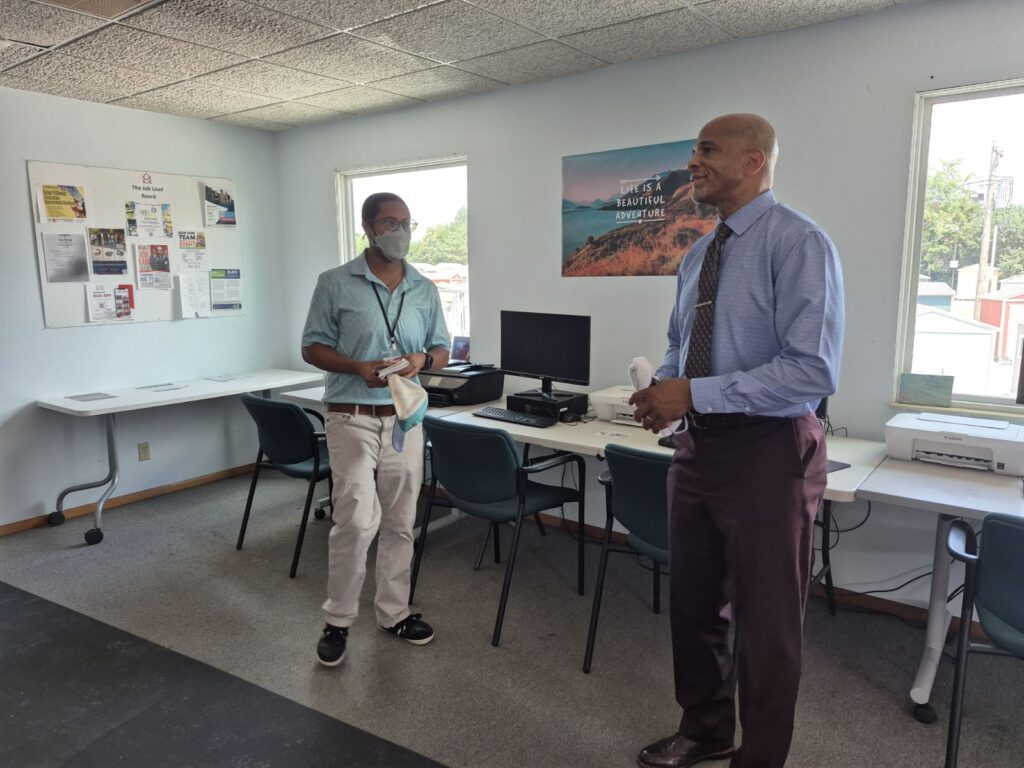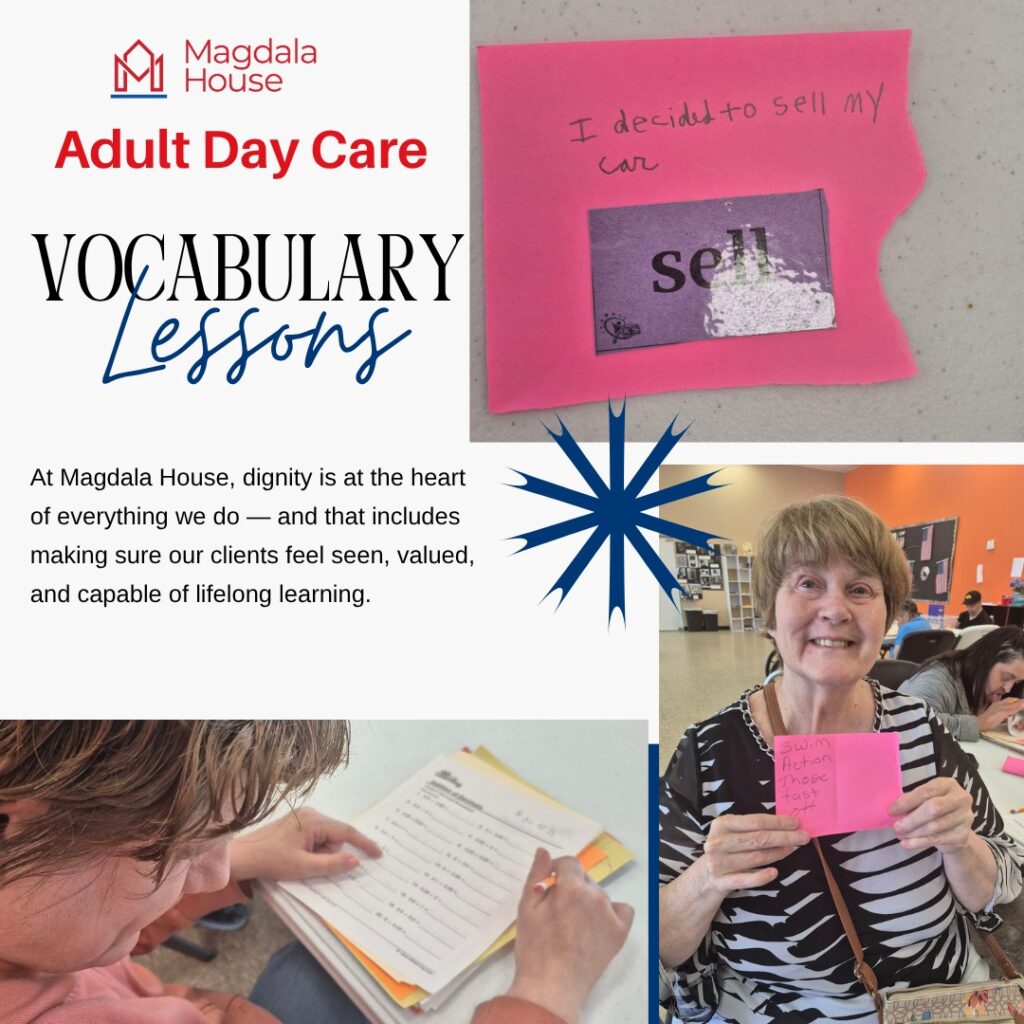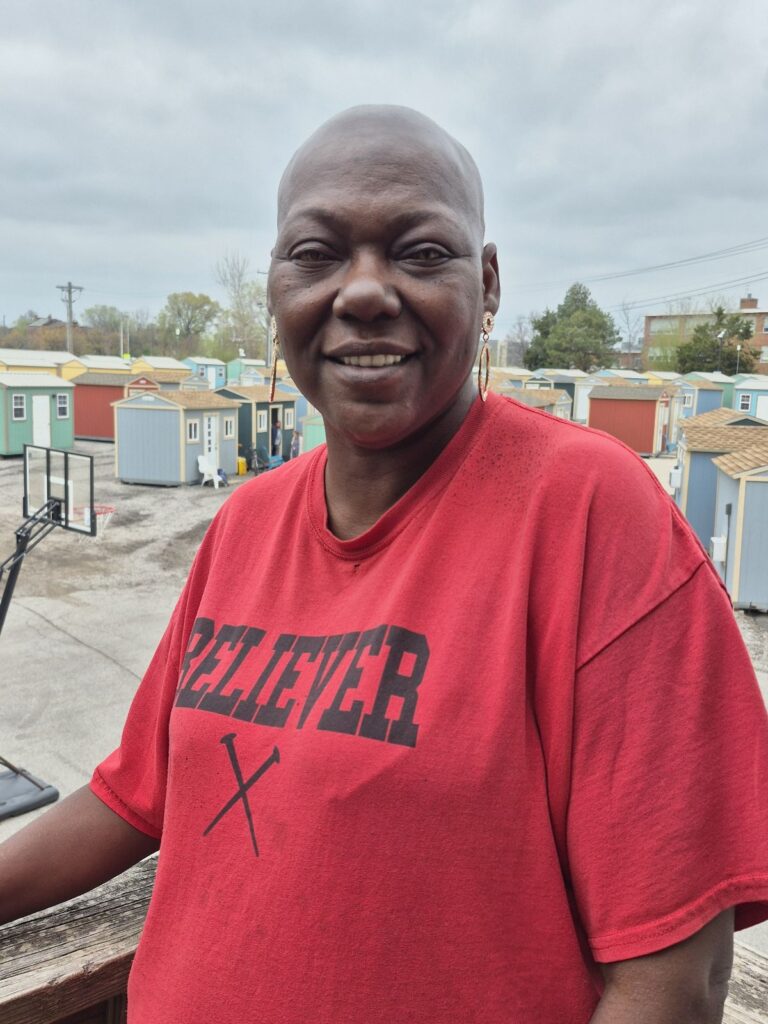“A Word With Dr. Warren” is a thought-provoking series by Dr. Warren A. Kass, a Consulting Clinical Psychologist at Magdala House with over 51 years of experience. In each segment, Dr. Kass shares his insights on personal growth, leadership, and community engagement, offering valuable wisdom to inspire positive change within Magdala House and the broader community.
Resilience is the ability to effectively cope with, adjust and recover from adversities and accompanying stressors. It reflects the ability to maintain a stable equilibrium in the face of traumatic events. It is the ability to “bounce back”, to transform one’s emotional and physical pain and grief into something positive and to flourish. It is being”stress hearty”, adapting to whatever life sends. It is the ability to view oneself as a “ survivor” or even a ” thriver”instead of a victim. Resilience also applies to social systems. In this realm resilience is defined as,” the capacity of a system to adapt successfully to challenges that threaten the function, survival or future development of the system.” Resilience applies not only to individuals but also to families, economies, ecosystems and organizations. It recognizes that while individual differences in personality or cognitive skills clearly contribute to adaptive capacity, supportive relationships, and cohesive communities are extremely important in the development and maintenance of resilience across the lifespan.
Resilience is a skill that can be developed throughout a person’s lifetime. As a skill resilience can be learned. While it has its foundation in the inherited temperamental characteristics of positive mood and a more tolerant response to stimulation, a person’s resilience can vary during our developmental years and adult life. As with other personality characteristics there are individual differences between people and their ability to be resilient. For the majority of people no matter what the nature of a traumatic event most will experience, feel and be preoccupied by the event for varying amounts of time before they will only gradually be able to bounce back and resume life mostly as it had been before the trauma. A substantial minority of people will have extreme difficulty returning to the way they lived before the trauma. These people will develop one or more of the following; PTSD, complex PTSD, depression, anxiety, aggression, substance use disorder or chronic adjustment problems. Who copes and who is overwhelmed and develops psychological disorders depends upon the age at which the trauma was experienced, its severity, duration and frequency and the resilience of both the person and their family.
Resilience is not some special or out of the ordinary component of personality. It is a fundamental component of normal, every day coping . People low in resilience are at risk for developing hyper-arousal in their stress response, depression, anxiety, interpersonal difficulties and physical disabilities. People who are high in resilience are empathetic and accepting. They possess the pro-social emotions of optimism, gratitude and forgiveness. They see stressors or traumas as events that can occur in anyone’s life, as challenges that people do overcome as they resume life in much the same way as they did before they encountered the traumatic stressor.
The factors that lead to resilience and protect individuals from the effects of adversity in trauma include supportive relationships, a belief in one’s ability to effectively master the world, to problem solve, to regulate their thoughts and emotions and to be optimistic and hopeful. As the devastating effects of childhood trauma (ACE’s) predispose children, adolescents and adults to increased risk of serious physical and psychological disorders and even early death, resilience shields us, dampens the effect of childhood trauma and increases our ability to develop adaptive and pro-social life skills. Families that foster resilience are supportive and encouraging. Parents model emotional control and regulation and encourage talking out frustrations and sharing achievements. Children raised in these families develop a sense of trust and safety in their family and their world. Resilience is further strengthened as the child attends and achieves in engaging schools. As adults community wide positive factors that foster resilience are based upon social cohesion and collective efficacy; the robust predictors of lower rates of violence within the community that are positively associated with lower levels of child abuse as well as the positive mental and physical health for its inhabitants.
The relative prevalence of adversity and trauma versus being raised in safe neighborhoods in two parent stable families, attending and achieving in engaging educational opportunities and obtaining housing with the means to sustain it is the major difference between Magdala residents and the larger community. With a minority of exceptions Magdala House residents have experienced repeated toxic levels of stress that began in early childhood. Frequently raised by a single parent struggling to survive and cope or by dysfunctional families were one or both parents experienced a major mental disorder, a substance use disorder or both, attending apathetic schools in crime prone neighborhoods that failed to identify learning disabilities and encountering social relationship difficulties in the early school grades, these individuals were ill prepared to cope with common life stressors. Many turned to substance abuse and other risky behaviors as a coping strategy.
As adults entering Magdala House it is crucial to understand the resident’s history; the traumatic experiences encountered as a child and adolescent and how the resident responded to them. What attempts were made to manage the events and what attempts have been made to address emotional and/or substance use problems. What has helped and what has resulted in frustration and a sense of hopelessness. It is necessary to listen carefully, put yourself in their shoes and let the resident tell their entire story without providing direction. If the resident believes they were heard, they may give the staff the opportunity to work with them and together develop achievable, small steps towards resident pro-social goals.
Warren A. Kass, Ph.D
For more information, see
- What does Resilience Mean? YouTube. Rise (2022). 3min16 seconds
- Lessons for SEL . February 28, 2021 Video Lesson of the week. Resilience
- Meichenbaum, D. (2016) New Developments in the Treatment of PTSD, Complex PTSD and Co-Occurring Disorders. Ways to Bolster Resilience. PESI
- Master, A. And Barnes, A (2018) Resilience in Children: Developmental Perspectives. Children, 5(7), 98
Note: You can’t learn resilience without going through adversity; doing things that are hard.
Life isn’t always going to be easy and it should not always be hard. Whatever you resist persists so learning how to let go and adapt to change and adversity helps you move into a new mindset and develop more resilience.







